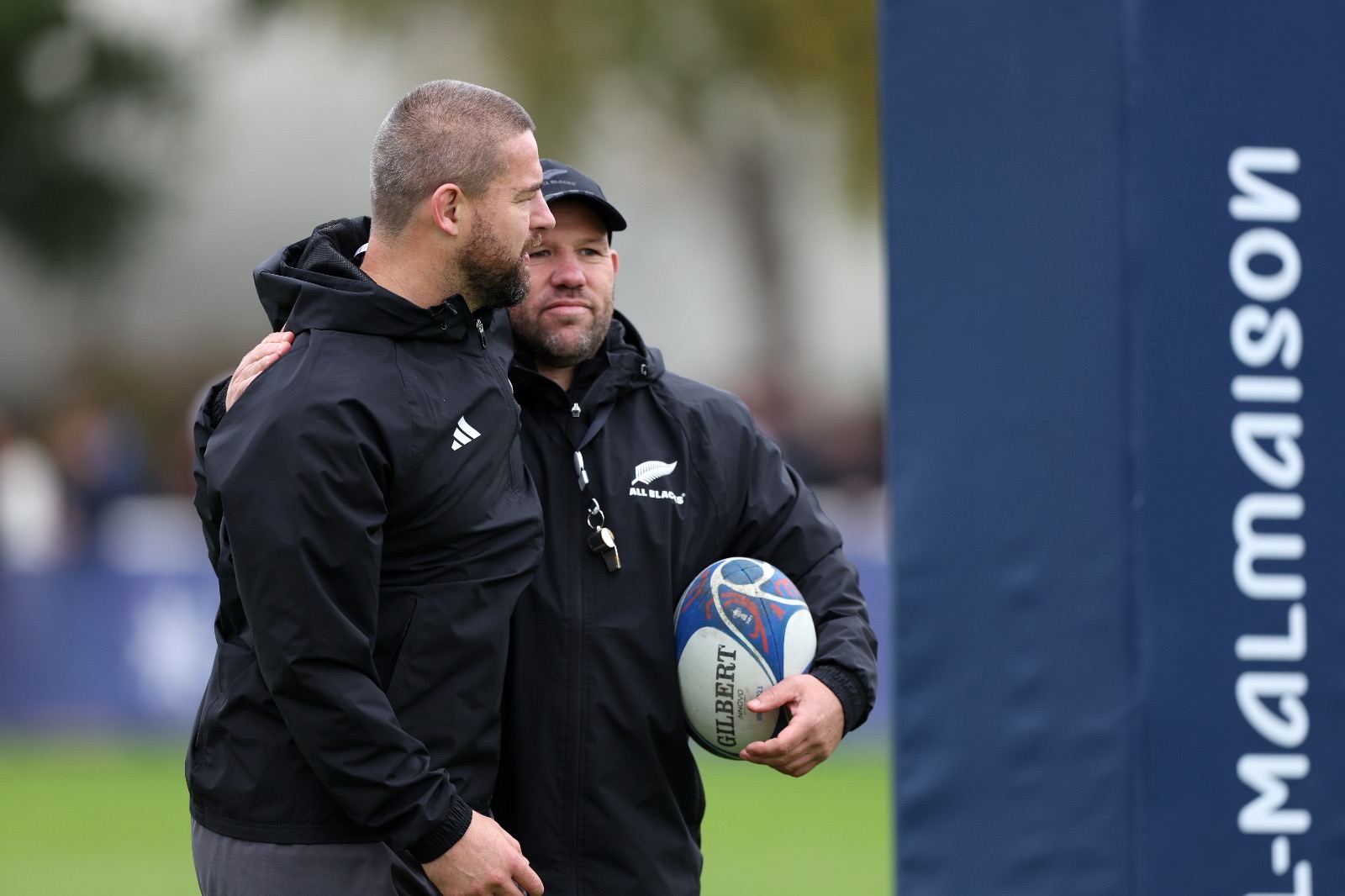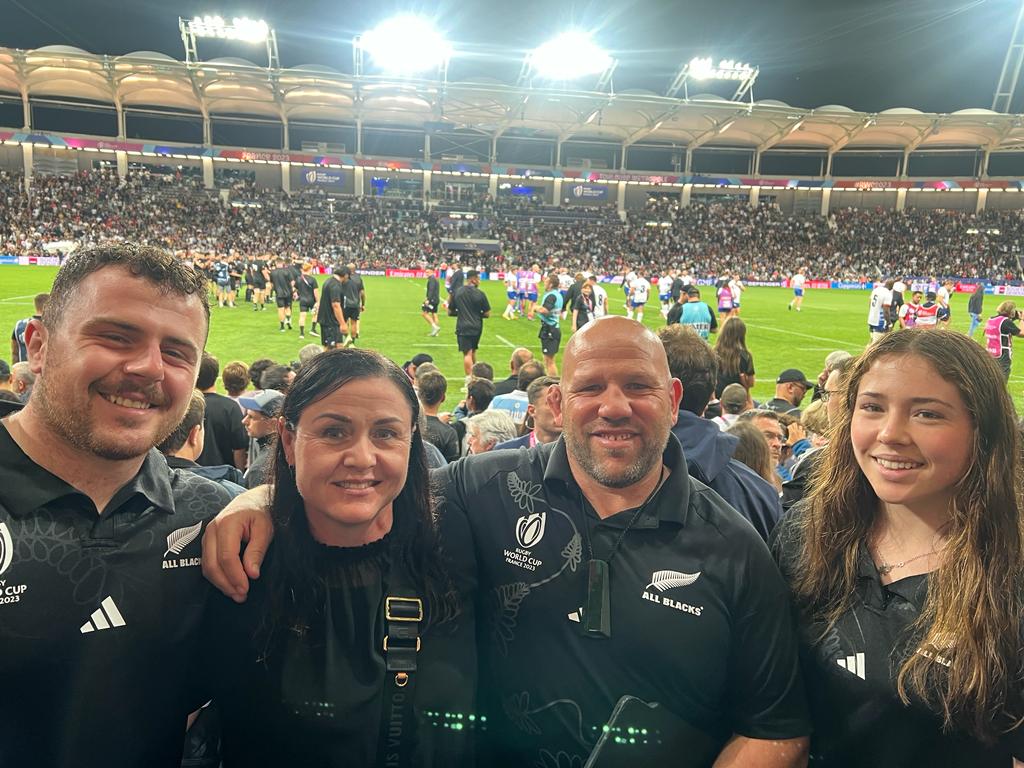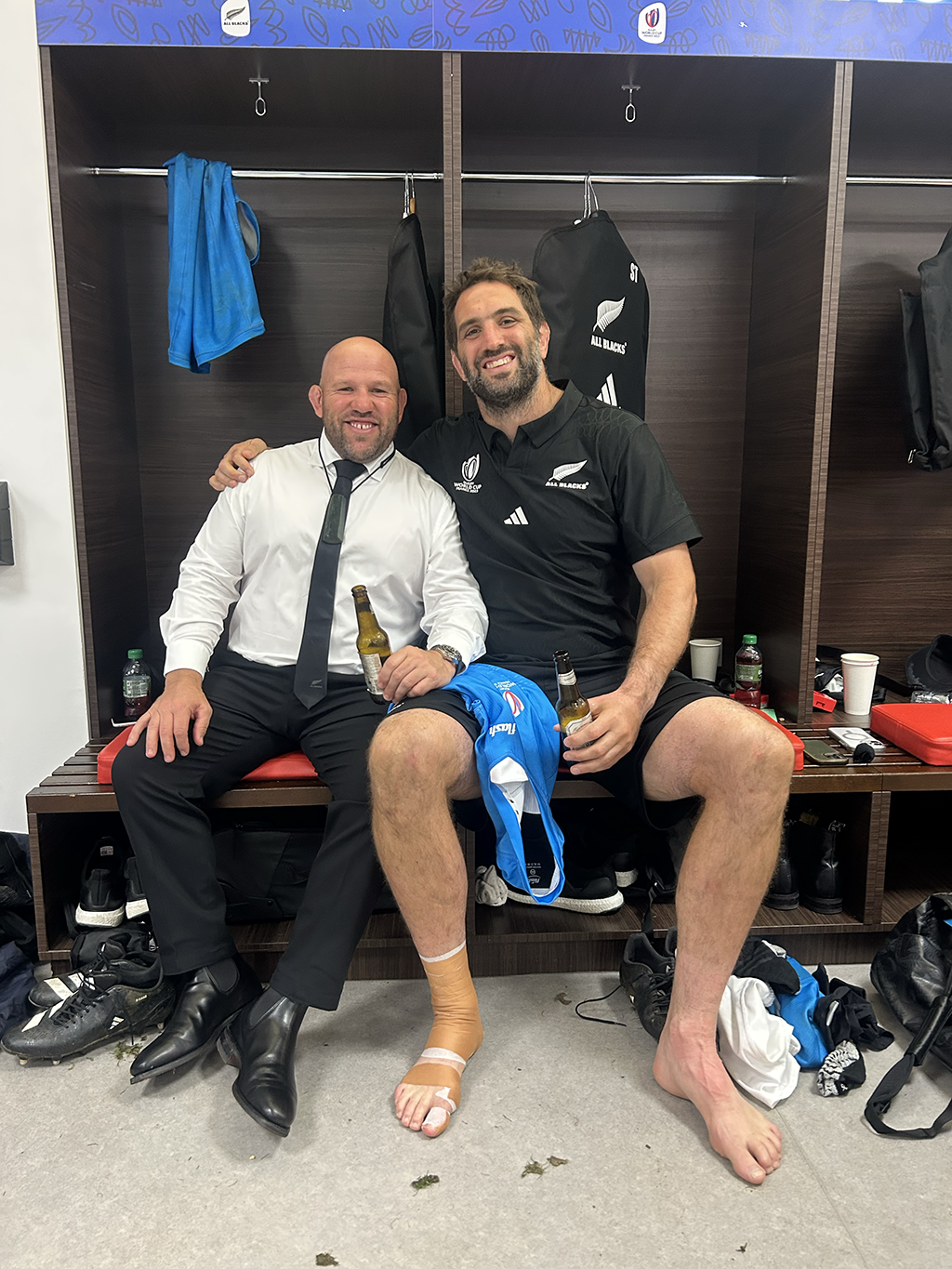Jason Ryan
Jason Ryan
- Coach Profile
Forging his path from highly capable front row forward in club rugby to assistant coach of one of the most recognisable teams in world sport, the All Blacks, Jason Ryan has become a coaching rarity in the process.
Always his own man, Ryan has rolled the dice and made brave decisions while being confronted with challenging
life dilemmas at times through his coaching odyssey but steadfastly stuck to his quest of traversing rugby’s coaching ranks.
Called into the All Blacks coaching set-up in 2022 completed a significant and rare achievement for Ryan, who, after starting at the grassroots level, has ended up at the international level without ever having played rugby professionally.
On odd occasions, but not very often, he does have a little moment of reflection.
“I think when you’re coaching, and you’re involved, you won’t probably reflect as much as you should because you’re always constantly trying to be a step ahead around what’s next and what you’ve got to do to be better with what’s in front of you,” he said.
“I’m proud of what I’ve done to date, but I am not satisfied. I keep pretty humble and keep my feet on the ground. It is a bit of a different track that I’ve cut. Many professional coaches around New Zealand rugby are ex-professional players, so that’s a bit of a point of difference for me, and it probably just comes back to back myself.
“I’d say I’ve been coaching professionally ever since I started coaching. The only difference was that, at the start, I wasn’t getting paid for it. I still planned all my sessions, asked for feedback on them, and wanted to improve.”
After playing nearly 200 senior games for Christchurch club Sydenham, six for Buller in 1999, and 14 for West Coast in the Heartland Championship from 2000 – 2003, Ryan moved into coaching.
“I was just going around a lot of different clubs, doing a lot of academy stuff and sharing scrum knowledge and helping young front rowers get better and then working with coaches,” he said.
“As I got increasingly involved, I enjoyed seeing young men or players get better, and that’s what I really get the most out of.”

“I still had a full-time job, obviously, because I wasn’t getting paid for it, so I sort of cut my own track, I guess, which is different to a lot of other coaches from the fact that they’ve played to a professional level where I haven’t.”
Coaching challenged Ryan in different ways, and the opportunity to be the West Coast’s scrum advisor in the Heartland Championship and then assistant coach in 2012 further fuelled his ambitions and the prospect of making it a full-time career.
In 2013, he signed on as Scott Robertson’s assistant coach with the Canterbury NPC team, beginning an ongoing successful coaching partnership that has also involved the NZ U20s, the Crusaders, and now the All Blacks. Roberston was named All Blacks head coach in 2023.
Taking on the Canterbury NPC job was a life-changing moment for Ryan. Working for a company selling drilling and mining equipment at the time, Ryan took the bold step of throwing everything into his rugby coaching career.
“I had to make a decision, really, whether or not I was going to have a crack at it, and that meant I had to chuck my job in, which was a massive risk at the time and wasn’t very nice, to be fair……..only a three-month contract while heading out of a fulltime paid job,” he said.
“When you’ve got a wife, young kids and a mortgage, it was brave and scary, but I rolled the dice.”

“It was only a three-month contract. I did that for two years, and it was my only guaranteed work, initially, and then I managed to get a little bit of work in Japan and a little bit of work in Brazil and made enough for us (family) to just get by.”
“It was frightening, to be honest. Then I got to work with the NZ U20s. Razor (Robertson) and I won four titles with Canterbury where my involvement was just with the scrum, then I moved into the forward coach role and then into the Crusaders.”
In charge of the Crusaders scrum, he played a key role in helping Robertson guide the red-and-blacks to six consecutive Super Rugby titles.
Ryan has mostly done things his way, taking a hands-on approach and engaging with others across many sports, which holds far more weight than gaining any formal qualifications.
“I think coaching qualifications are just a box-ticker and are no different to a driver’s licence,” he said. “Just because you’ve got your licence doesn’t mean to say you’re a good driver. I think many of the coaching courses I’ve been on are stale and well out of touch.”
“I’ve got more out of working with other sports and getting to know other coaches, that’s helped me in my development outside of the game.”
“At that stage, with the Crusaders, that was the ultimate but also just another opportunity. I don’t believe there’s
a pathway in coaching. There never has been. There’s no pathway for players, either. There’s no pathway in life, is there? There’s just opportunities.”
“I don’t like the word pathway. I think it’s unrealistic, but there are opportunities, and when you get an opportunity, you’ve got to take it, and I guess, initially, I had that opportunity and a bit of a taste of it with Canterbury, then got another opportunity with the Crusaders.”
“And that’s where things fell into line for me, I guess because that was a full-time three-year contract at that stage. You’re working with professional players, and I could challenge them in a different way because I hadn’t worn the jersey.’’
That included working with pretty much an All Blacks forward pack, where the likes of Kieran Read, Owen Franks, Joe Moody, Cody Taylor, Matt Todd, Sam Whitelock and Scott Barrett plied their trade with the Crusaders, but who hadn’t won many championships in a long time.
Ryan put his own touch on challenging the underachievers to become the most dominant team in Super Rugby history.
As for his call-up to the All Blacks assistant coach role, Ryan was in Fiji at the time, working with their head coach, Vern Cotter. With the All Blacks struggling at the time, Ryan isn’t sure if he expected to get the call, but he felt they needed a change and jumped at the opportunity.
Within 48 hours, he had delivered two training sessions with the All Blacks in Wellington, and then it was off to South Africa for the first games of the 2022 Rugby Championship.
Two years on, Ryan is in the midst of one of the most scrutinised coaching environments in world sport, in a position to which he seems tailor-made.
“It’s a privilege, and I wouldn’t want anything to be any different,’’ he said. “It’s where I want to be, but I strive to improve. It’s a job you can’t get comfortable with. I’ve still got my own, I believe, point of difference around how I work with the players.”
“I pride myself on getting to know them first and then coaching them. They don’t really care what you know until they know how much you care, so I enjoy that aspect of it, enjoy the pressure, and always try and coach the player as opposed to performance on Monday, no matter what the result has been on the weekend.”
“I have a couple of standards that I live by and love it.”
Ryan has two standout memories from his career thus far, and both happened at Ellis Park in Johannesburg. The first was the 2017 Super Rugby final, where the Crusaders were the first off-shore team to win the title in South Africa. The second was his first test win, also at Ellis Park.
Ryan has met many people who have impacted his coaching career, but two stand out above the rest.
“Mike Cron (renowned former All Blacks forward coach) has been a mentor and someone I’ve really looked up to, someone I’ve respected and someone who’s shared a lot of information with me and helped me,” Ryan said.
“And probably the other one, outside of rugby, would be my dad, Bernie. He’s also guided and challenged me in different ways, which has been good.”
From grassroots to international, Ryan has followed his own path with great success. The ultimate reward is development and improvement, not only for the athletes but also for himself.
“I just love seeing growth in young men…..when they’re a little bit out of their comfort zone initially, and then they nail a few things you’ve been working on to try and make them better, and that’s a growth,” he said.
“That’s what I love seeing when they go from being boys to men, and you get to see them thrive on and off the field. That’s what success looks like for me, it’s more reward than any trophies.”
“I want to win a World Cup, and to do that, I have to be in the best physical and mental shape. I’ve done a lot of work on myself in the last wee while, understanding my blind spots and just continually growing as a person because I think that any coach who wants to be better is always going to know what your sport’s about, but you’ve got to know what you’re about to get to the next level.”
“You’ve got to be clear on who you are, what works, but be a flexible thinker and be open to people challenging you in different ways, and that’s what I’ve probably found out a little bit more about myself in the last couple of years in that area.”
